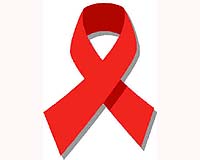| . |  |
. |
Beijing (AFP) Dec 2, 2009 China's official swine flu death toll has tripled in the past two weeks after the government ordered more accurate reporting of fatalities amid suspicions of a cover-up. A statement posted on the health ministry's website late Tuesday said the number of people reported killed by the influenza A(H1N1) virus had jumped to 178 at the weekend, up from a previously reported nationwide tally of 53. The statement gave no reason for the sharp increase but it comes after the ministry on November 19 ordered more transparent reporting following comments by a renowned medical whistleblower who questioned official tallies. The statement noted that "the number of severe cases and deaths continues to rise." "The epidemic situation in our nation remains grim," it said. Despite reporting tens of thousands of confirmed A(H1N1) cases in China since the virus first emerged this spring in North America, the reported death rate here has remained far below that of other countries. Cover-up suspicions were fuelled last month when medical expert Zhong Nanshan was quoted by a Chinese newspaper saying he suspected authorities in some areas were under-reporting fatalities to convince superiors they were containing the virus. Zhong's opinion carries weight after he earned wide respect in 2003 for defying the official line on the Severe Acute Respiratory Syndrome (SARS) outbreak to help reveal the true extent of the illness. The government had initially tried to hide the SARS outbreak and only owned up after it began to spill over into other countries. The health ministry order for better reporting came shortly after Zhong's comments were published. Chinese officials including Health Minister Chen Zhu have warned repeatedly in recent months that China was likely to see a sharp increase in overall cases of swine flu and deaths during the winter, when flu is most virulent. Tuesday's health ministry statistical statement said more than 91,000 people had been confirmed to have contracted the virus in China, the vast majority of whom had already recovered.
Severely ill hospital patients need swine flu drug boost: WHO Although the WHO said there was no evidence that the two clusters found in Wales and in North Carolina marked a wider public health threat, it reiterated calls for vigilance and modified treatment advice for the frontline flu drug. In the two clusters found in single hospital wards in October and November, patients -- eight in Wales and four in the United States -- were suspected of infecting each other with the Tamiflu-resistant strain. In such patients with suppressed immune systems, "standard treatment doses and duration for treatment with oseltamivir (Tamiflu) are unlikely to be sufficient," the WHO said in a briefing note posted on its website. "Though clinical judgement is important, doses may need to be increased and continued, without interruption, for the duration of acute illness," it added. The UN health agency also recommended that the alternative drug to Tamiflu, Zanamivir, "should be considered as the treatment of choice for patients who develop prolonged influenza illness despite treatment with oseltamivir." Oseltamivir is sold by pharmaceutical company Novartis under the brand name Tamiflu, while GlaxoSmithKline's Zanamivir is marketed as Relenza. The WHO repeated the need for "vigilant monitoring" of the Tamiflu-resistant flu virus. "Experience with seasonal influenza viruses shows that resistant viruses can quickly spread within the general population and become established, rendering one or more antiviral drugs ineffective," it cautioned. Within the past two weeks, the number of documented cases of Tamiflu resistance in those who have contracted A(H1N1) flu has risen from 57 to 96, according to the global health watchdog. About one third occurred in patients whose immune systems were severely weakened by blood problems, aggressive chemotherapy for cancer, or post-transplant treatment. There was no sign in the US and British clusters of infection that the resistant strain had infected hospital staff, other wards or outside. "Results to date are reassuring," the WHO said. "Although all incidents of oseltamivir resistance merit investigation, no evidence suggests that events to date constitute a public health threat." Share This Article With Planet Earth
Related Links Epidemics on Earth - Bird Flu, HIV/AIDS, Ebola
 Calls for end to discrimination on World AIDS Day
Calls for end to discrimination on World AIDS DayPretoria (AFP) Dec 1, 2009 Calls for an end to discrimination against sufferers rang out on World AIDS Day on Tuesday as South Africa, the country worst affected by the pandemic, rolled out a new plan to beat the virus. With more than 33 million people round the world carrying the virus, China said the incidence among homosexuals was gaining pace while there were warnings in Europe that heterosexual contacts had ... read more |
|
| The content herein, unless otherwise known to be public domain, are Copyright 1995-2009 - SpaceDaily. AFP and UPI Wire Stories are copyright Agence France-Presse and United Press International. ESA Portal Reports are copyright European Space Agency. All NASA sourced material is public domain. Additional copyrights may apply in whole or part to other bona fide parties. Advertising does not imply endorsement,agreement or approval of any opinions, statements or information provided by SpaceDaily on any Web page published or hosted by SpaceDaily. Privacy Statement |